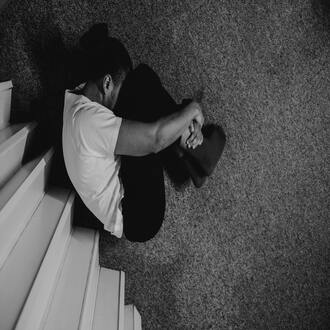Transcription Guilt: origins and types
Guilt is a complex and often painful emotion.
It's classified as a social emotion because it's intrinsically linked to our relationships with others and our moral code.
To manage it properly, it's helpful to understand its possible origins. Psychologists often distinguish between two main types of guilt.
On the one hand, we have "residual guilt."
This type of guilt has its roots in our childhood. It's an emotional reaction that haunts us from childhood into adulthood.
It's formed from the criticism, standards, and expectations of authority figures, such as parents.
When, as adults, we engage in behavior that was criticized in the past, we feel guilt. It's as if an old recording were playing in our minds, causing us to feel remorse.
This type of guilt often doesn't correspond to our current value system, but to an inherited one.
On the other hand, there is ''self-imposed guilt''
This is the feeling of guilt that we force ourselves to feel in the present.
It occurs when we act against our own current code of values. For example, if we have hurt someone and we feel bad about it.
For many people, feeling guilty after having done something wrong is an important part of the repentance process.
The fundamental purpose of guilt is to help us learn from our mistakes.
It seeks to make us repent so that in the future we act in a different way, more aligned with our values.
However, the problem arises when this feeling becomes chronic and is no longer functional.
Summary
Guilt is a complex social emotion related to our moral code and our relationships. It can be painful, but it also plays an important role in self-regulation and learning.
There is residual guilt, which arises from norms imposed in childhood. Although they no longer reflect our current values, we still feel it like an old recording that is triggered by certain behaviors.
There is also self-imposed guilt, which appears when we act against our own values. It's helpful if it leads to repentance, but it can become dysfunctional if it becomes chronic.
guilt origins and types




